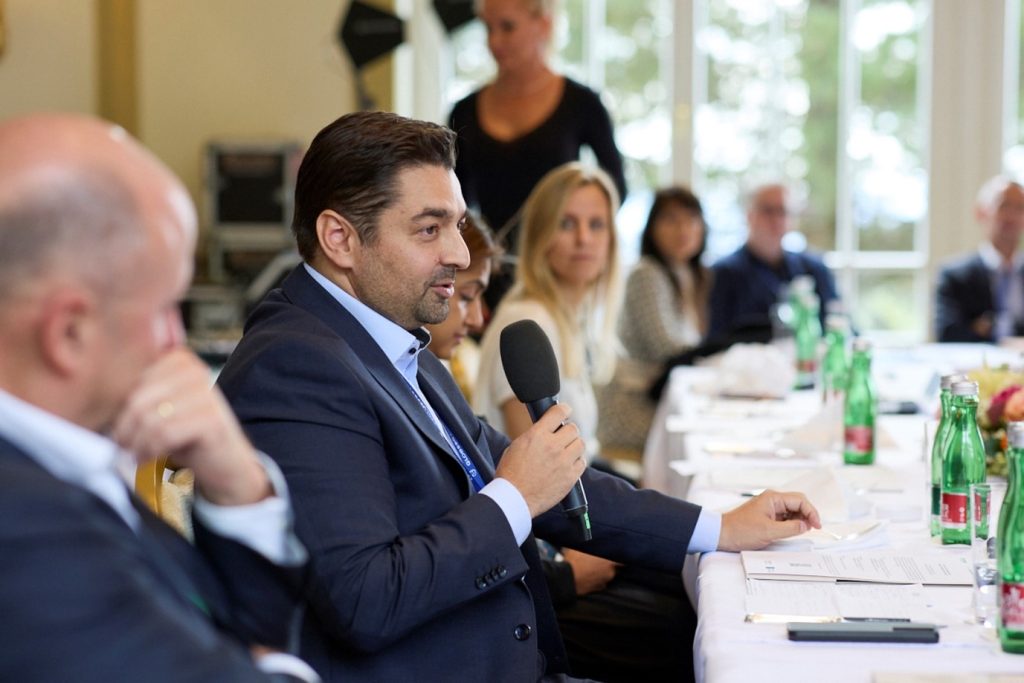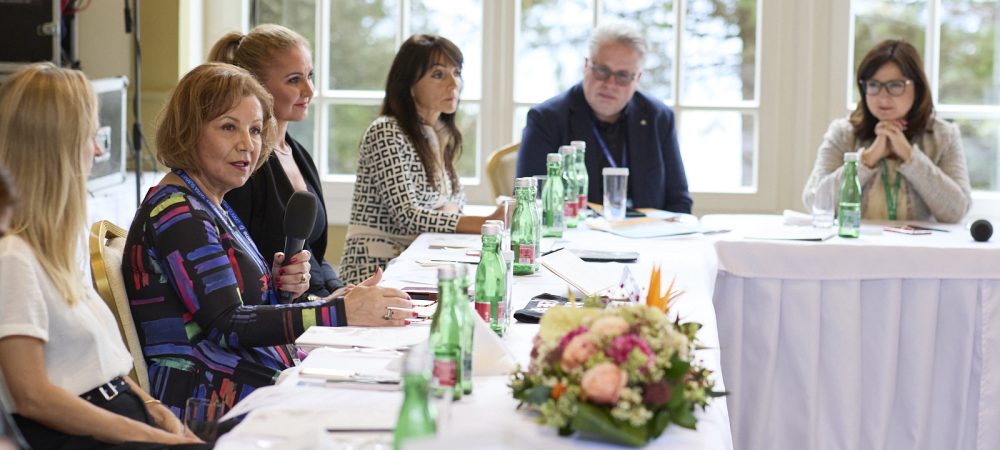Author: Oleksandra Hordon
A recent iteration of GLOBSEC’s flagship event, the Tatra Summit, took place from the 6th to the 8th of October, 2023. Amid a diverse array of engaging panels and breakout sessions, this year’s agenda featured the CEE Her Working Lunch, titled “Re-energizing Energy: Where are the Women? Why the Urgency?“
In the context of global geopolitical uncertainties and the ongoing climate crisis, an immediate imperative arises: to uncover innovative solutions and propel progress within the energy sector. This prompts the question: what lies ahead for this industry? A wealth of fresh challenges and opportunities awaits, holding the potential to rejuvenate the sector. Nevertheless, it is crucial to recognize that the energy sector is often seen as predominantly male-dominated despite some strides towards change. Now is a pivotal moment to prioritize the involvement and inclusion of women, especially in decision-making roles, ensuring not only the sector’s future growth but also accountability in environmental, societal, and governance matters.

This dynamic discussion, guided by Anita Orban, brought together experienced female and male speakers who shared their insights on the industry. The panel kicked off with Sally Painter, Co-Founder and Chief Operating Officer at Blue Star Strategies, who presented some global statistics on the energy industry. She stated, for instance, that women hold only 25 seats on the board of the top 500 world’s largest utility companies; 63% of all energy startups are led by all-male teams; women’s participation in the energy sector equals only 25% of workers in energy and only 32% in the renewables, despite 47% of women in the overall US workforce. Despite alarming numbers, the United States has implemented some positive practices which target women’s participation and visibility in the energy sector . To mention some, the Clean Energy Leadership Institute encourages women to apply for fellowships in their mid-career to maintain jobs in the clean energy field over the long term. The Clean Energy Education & Empowerment (C3E) Initiative at the Department of Energy aims to close the gender and wage gap.
Zsofia Beck, Managing Director and Partner at BSG, presented key findings from the latest WoNY Women in Energy 2.0 Study. This study aims to comprehend the status, dynamics, and perspective of the female workforce in this sector throughout their careers. It also shares best practices and specific recommendations for increasing gender diversity. Ms. Beck highlighted the key factors that influenced the energy sector the most in the past five years, according to the study:
- COVID-19 crisis: what initially seemed like a negative influence eventually created more flexibility in the workplace, ex: hybrid or online mode;
- ESG push: although it seemed promising at first, it later resulted in a drop in diversity. An increased pressure with the quotas might have caused this;
- The Russian invasion of Ukraine: although it is a terrible thing, the war is pushing the energy transition, creating jobs that are also fitting for women, such as IT/AI specialists.
Ms. Beck additionally showcased some of the most significant practices from the CEE and the global region in advancing women’s positions in the energy sector in three directions:
- Attracting women, for example, by having visible role models;
- Keeping women in the sector by providing more flexibility, helping to maintain work-life balance, assisting in caregiving;
- Promoting women by not only following the quotas but mentoring and educating women experts.

Tara Lindstedt, Board Member and Acting Chief Development Officer of InoBat, shared a more personal perspective on the topic and offered practical recommendations for both women and men in the industry. For instance, men must include women in the conversations, and, at the same time, women should seek to be included. Women are often seen on the emotional side of businesses, as caregivers and nurturers, for example, but this stereotype must be redefined.
The male perspective on the panel was represented by Marino Franinovic, Co-Founder and Managing Director of OEN Group, who shared his company’s positive experiences in welcoming more female experts to the team. Adam Varga, Group Head of Strategy at MVM, emphasized the importance of shifting societal mindsets, starting within households and influencing the upbringing of children from an early age.

In summary, the key recommendations for advancing the position of women in the energy sector include:
- Establishing comprehensive workforce development programs, encompassing recruitment, mentoring, and training, to bridge the gender gap and cultivate diverse leadership pipelines.
- Actively promoting women into leadership positions, not only through quotas but also via mentorship, female role models, and challenging stereotypes to shatter the glass ceiling.
- Engaging men as allies to support gender diversity by confronting bias and advocating for inclusive workplace policies.
- Providing flexible work arrangements and support systems to help women balance their careers with caregiving responsibilities.
- Challenging traditional gender stereotypes within the energy sector, fostering inclusivity and gender equality in technical and leadership roles.

